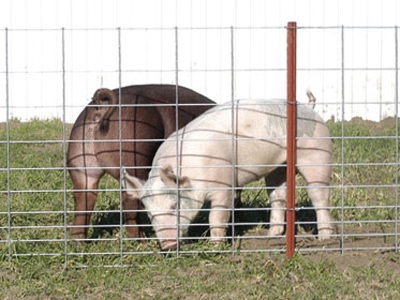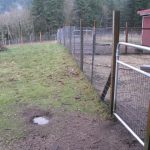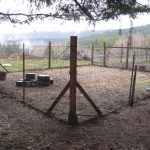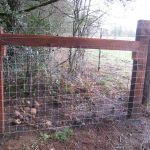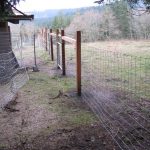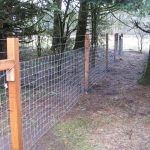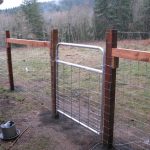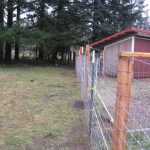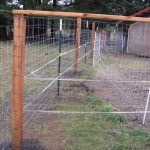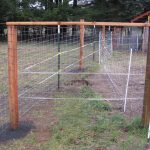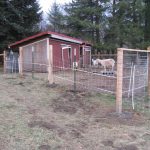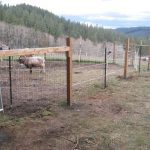Llamas | Alpacas | Goats | Sheep Fencing
Here's an overview of different fencing types and applications. Read through for information to help you decide which fencing might be best for your style and setup.
Sheep & Goats
Sheep & Goats are intelligent inquisitive animals. Goats tend to 'test' a fence more than sheep. They also feed over the whole paddock, further than other livestock. Some types of agricultural fencing may be adapted for goats by adding strands of barbed wire or an electric fence wire at about 8 inches high & 6 inches away from the fence. Fences must be taut with no gaps. Goats will escape! Goats, as most other animals, must be trained to electric fencing, and charges should be maintained at a minimum of 4,000 volts. Eight strands of tight barbed wire or five strands of high-tensile electric or woven wire 47 inches high topped with barbed wire and with another strand of barbed wire at ground level will make a good fence. Barbed at the top will prevent them from jumping over and the barbed at the bottom with stop them from digging under.New Zealand Electric
"New Zealand Electric Fencing" works well for sheep and goats. It can be purchased in heights of 5 or 6 feet and is made of woven wire with smaller predator proof construction at the bottom. It is ideal for cost conscious consumers looking to fence perimeters. Brush and tree lines or wooded areas provide a clear visual contrast that allows the livestock to clearly see the fence. NZ electric is ideally suited for heavily wooded areas, where trees are likely to fall on the fence as maintenance and repair are far easier than with more robust products. Add coated electric wire on the top, such as Equi-fence to improve visibility. Again, if you haven't read this yet, it is NOT suited for turn-out runs or small adjoining paddocks. If you need a cost effective solution for this application, consider horse tape or equistrand, but realize both are temporary solutions.